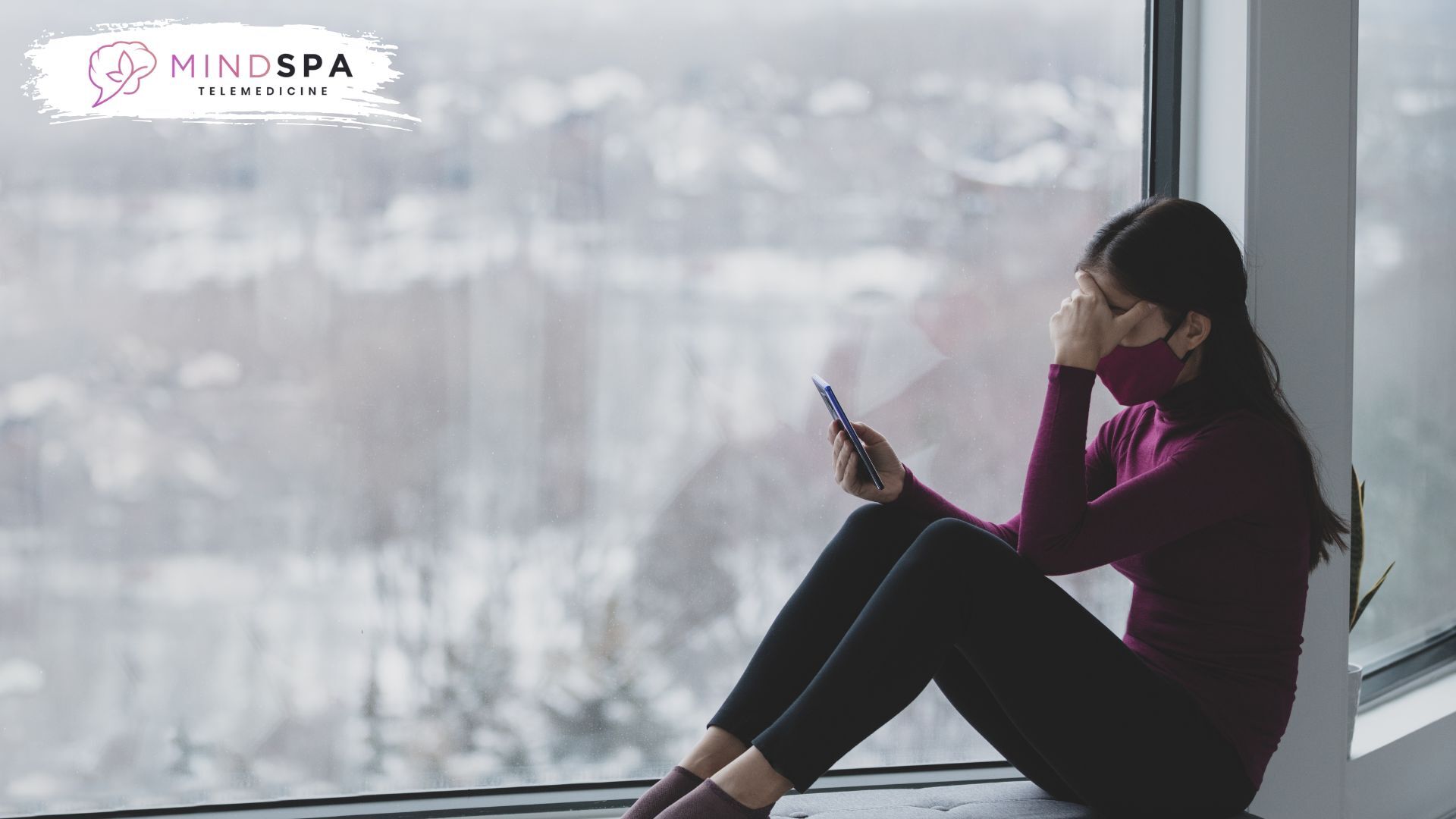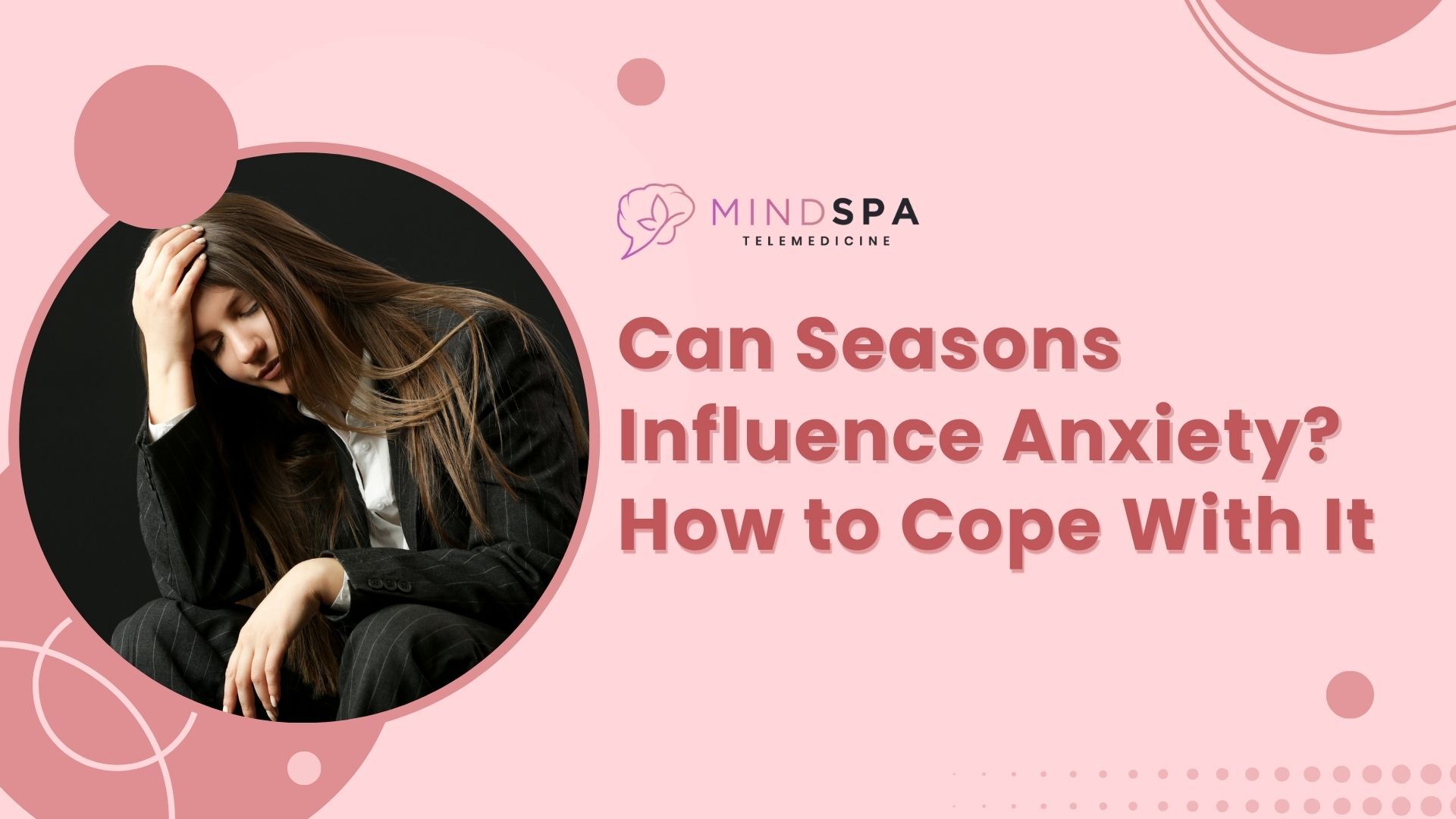Seasonal changes affect weather, daylight hours, and schedules, all of which play a crucial role in physical and mental health. Can seasons affect anxiety? Well, the answer is yes. Some people may experience growing anxiety in response to these changes. This is referred to as seasonal anxiety.
By knowing how and why seasons impact anxiety, you may be able to prevent the symptoms and keep their mental health in check throughout the year.
Seasonal Anxiety: An Overview
Seasonal anxiety is a condition where one experiences worsened anxiety symptoms during different seasons than during Seasonal Affective Disorder. While SAD is a type of depression that is associated with particular seasons, mainly winter, seasonal anxiety is characterized by increased anxiety levels.
Seasonal Affective Disorder can be characterized by more excessive concern, agitation, and stress at some portion of the year. This disease results from the decrease in the number of daylight hours, unfavorable climate conditions, and the pressures of the holiday season. While SAD creates depressive moods, seasonal anxiety contributes to increased nervousness and feelings of unease.
Identifying these symptoms and knowing how they are related to the seasons can help alleviate anxiety by changing some aspects of one’s daily life, talking to a therapist, or taking medication. All individuals who experience symptoms should consider accessing early professional care so that they can be assisted in adopting patterns on how to manage the symptoms.
How Do Seasons Affect Anxiety?
1. Daylight Exposure
Light affects the body clock, which impacts the sleep-wake cycle, mood, and anxiety. As the days become shorter in the fall and winter, it may disrupt the body’s natural clock and cause serotonin levels to drop, a neurotransmitter that plays a role in regulating mood.
A study shows that reduced amounts of sunlight are associated with increased levels of anxiety and depression. This means that there will be low levels of vitamin D since it directly results from sunlight, and this vitamin is essential as its deficiency leads to mood disorders such as anxiety.
2. Temperature Changes
Stress is also affected by extreme temperatures such as high and low temperatures. In winter, people spend fewer hours outside the house due to low temperatures, which causes them to become more lonely and less physically active, which can cause anxiety. On the other hand, heat interferes with comfort and increases stress among people with heat intolerance.
Studies show that both heat and cold increase anxiety levels, with considerable effects noticeable during the hot and cold seasons.
3. Lifestyle Alterations
Seasonal variation therefore includes changes in the schedule from work, stress during the holidays, and other changes in activities. Such changes can lead to the alteration of daily schedules and contribute to the development of stress. This is especially the case in the holiday season, where people are forced to travel, spend lots of money or even be with people they do not want to be around.

Managing Seasonal Anxiety
It is possible to reduce the effects of seasonal anxiety if people learn about signs and what is the best way to cope anxiety. Here are some effective coping strategies.
1. Light Therapy
Phototherapy is the process of subjecting the patient to extremely bright artificial light that can be comparable to natural sunlight. It is helpful in treating SAD and may also help those who are experiencing seasonal anxiety. People who regularly utilize light therapy report feeling happier and experiencing less anxiety, according to an article in American Family Physician.
2. Physical Activity
Daily exercises are known to help one lower their level of anxiety. Exercise increases endorphin production, elevates mood and assists in sleeping and eating patterns. When the weather is too cold, one may have to perform workouts inside the house by jogging, doing yoga, swimming or even using the treadmill.

3. Healthy Diet
You should consume foods with omega-3 fatty acids and vitamins and minerals. They can help to boost mental health. Some of the foods that should be consumed include fatty fish, nuts and seeds, and green leafy vegetables, as they enhance the mood and help in managing anxiety.
4. Routine and Structure
You can manage your anxiety well by creating a daily routine and sticking to it. Daily routines, adequate sleep, and scheduled social contacts can be beneficial in minimizing the effects of seasonal changes.
5. Mindfulness and Relaxation Techniques
Other ways of coping with anxiety include mindfulness meditation, deep breathing exercises, and progressive muscle relaxation. These techniques will help you to control anxiety and stress and hence can be used in reducing seasonal anxiety. You can consult a professional to overcome your anxiety issues.
Conclusion
Now, you understand how seasons affect your anxiety and its symptoms to effectively manage them. You can use light therapy, do daily exercise, eat healthy food, and do meditation. They can help you reduce the effects of seasonal changes on the mental state and remain psychologically stable throughout the year.
Related Questions
How can light therapy help with seasonal anxiety?
Light therapy entails using artificial light with wavelengths similar to those of natural sunlight. It aids the regulation of circadian rhythms and elevates serotonin levels, thereby reducing symptoms of depression and anxiety. It may be best to use it during the change of seasons especially during the fall and winter.
In what ways can one exercise to lessen seasonal anxiety?
Yoga, swimming, and the treadmill are some indoor exercises that can be done during colder periods. These activities increase endorphins, enhance mood and promote regular circadian rhythm to relieve anxiety.
How does diet influence seasonal anxiety?
A healthy diet that contains sufficient amounts of omega-3 fatty acids, vitamins, and minerals is good for the health of our brains. Some foods that can help keep the mood healthy and have little or no anxiety symptoms include fatty fish, nuts, seeds, and green vegetables.
How do you deal with seasonal anxiety?
The symptoms of seasonal anxiety can be alleviated by artificial exposure to natural light, regular exercise, correct nutrition, keeping to a particular schedule, and practicing mindfulness exercises. All these strategies assist in regulating moods, decreasing stress as well as stabilizing in an attempt to decrease the effects of shifting seasons on anxiety.


